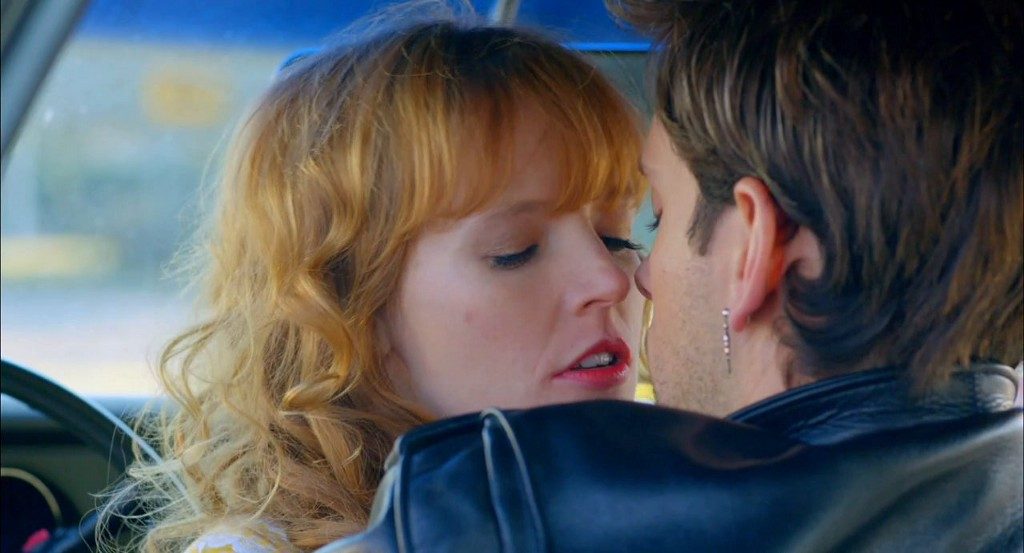Richard
Linklater’s “Boyhood” got a lot of
deserved attention for the dedication it took to make a feature film over 12
years. While that timeline was planned, getting a film made often turns out to be an unanticipated
endurance test. I spoke to four female directors who have been working on their
films for years about what it takes to get to the finish line.
Marin Gazzaniga: How many years have you been working on your
film — and why?
Alicia Slimmer,
writer-director-producer of the coming-of-age comedy “Creedmoria”: I
wrote the script when my daughter was born and planned to go into production
four years later. My daughter is now ten, and I am now in post. In 2009, I had a
reading with Ana Gasteyer, and I was convinced I would raise the money that
night. But my timing was terrible. The housing bubble popped, the economy was
in a downward spiral and it became clear my $2,000,000 budget would have to be
reimagined. Luckily, the crowdfunding model happened at the same time, and Independent Filmmaker Project became my fiscal sponsor. I cut my budget to the barest bones and made
fundraising my full-time job.
Leslie McCleave,
director-producer of the documentary “How Sweet the Sound: The Blind Boys of
Alabama”: I originally thought this would be a 2–3 year
project. But this is the first documentary film about this legendary group, and
I worked on it for over ten years. I met the band at the very end of 2002 and
shot off and on until 2010, with a little pick-up shooting in 2013 and this
year.
Sabine Krayenbühl & Zeva Oelbaum, co-directors of the documentary “Letters from Baghdad” about Gertrude Bell, a British-born
diplomat and spy who helped create the nation of Iraq: We’ve been working on the film for nearly
three years. It revolves entirely around primary source material and archival
footage, and it has been very time-consuming to gather the material and make
the choices to create a narrative. We are each wearing many different hats:
researcher, writer, director, producer, editor and fundraiser. In addition,
we’ve applied (successfully) twice for a National Endowment for the Humanities
grant — a hugely time-consuming process.
Each application was nearly 100 pages long.
MG: What drives you and keeps you motivated?
McCleave: I always finish my projects, even if it
takes a long (long) time. In this case, my first feature documentary, I felt
the extraordinary privilege of portraying a version of someone’s real-life story. You have to finish the film.
Krayenbühl
& Oelbaum: Our
project began out of passion, mutual interest and respect for Gertrude Bell. The more we have researched, the more fascinated we have become with her story and the establishment of the state of Iraq and the Iraq Museum. We feel a real
need to bring her forgotten but timely and unconventional story to a larger audience.
Slimmer:
You make a movie because you want to tell a story to a room full of people
staring up at the screen. Dreaming is what makes filmmakers, and fundraising is
what makes films. When all else turns to shit and you face the nightmare of
never getting the film off the ground, you dream. You dream up the script. You
imagine calling “Action!” Then you shoot the film and imagine post-production.
Then you edit and imagine screening it for your family and friends. Then you
dream of Sundance: Wearing a lanyard around your neck, rubbing elbows with
other creative people and watching your movie open on the big screen.
MG: Are there any unexpected benefits to the
long process?
Slimmer: The
only upside is having the time to hone the idea of the movie you want to make
and the environment you want to make it in. I knew that if I could run a set
the way I host a dinner party, I would create something magical and memorable.
The irony is, the minute you have your shooting dates confirmed, you
immediately wish you had more time to prepare!
Krayenbühl
& Oelbaum: Through
our Kickstarter campaign and website, we’ve been able to build a wonderful,
international group of people interested in the film. That’s a huge benefit to
a long lead time.
McCleave: The story of our film turned out to be
two-pronged – — it’s the history of the band, as told by the people who lived it,
while at the same time joining the current touring group on the road and off over the last ten years. And a lot
changed in those ten years: A retirement, a death, someone gets let go, issues
of aging and illness. I think seeing all that unfold and the band
continuing to soldier on is a strength of the piece.
Where They Are Now
Krayenbühl & Oelbaum and Slimmer have finished principal photography and
are working to complete their films by fall. McCleave’s doc just had its world
premiere at the Nashville Film Festival, screened at Chicago International
Movies and Music Festival and will be at SF Doc Fest in June.
Marin Gazzaniga (@mgazz) is a writer for page, stage and screens and
producer-director for digital. She wrote and co-produced the indie film “So Close.”







